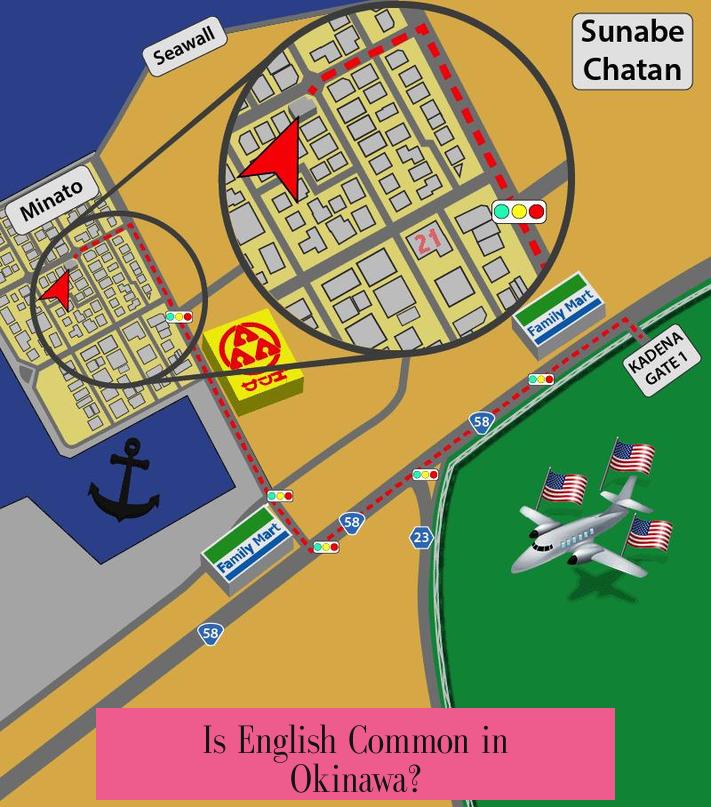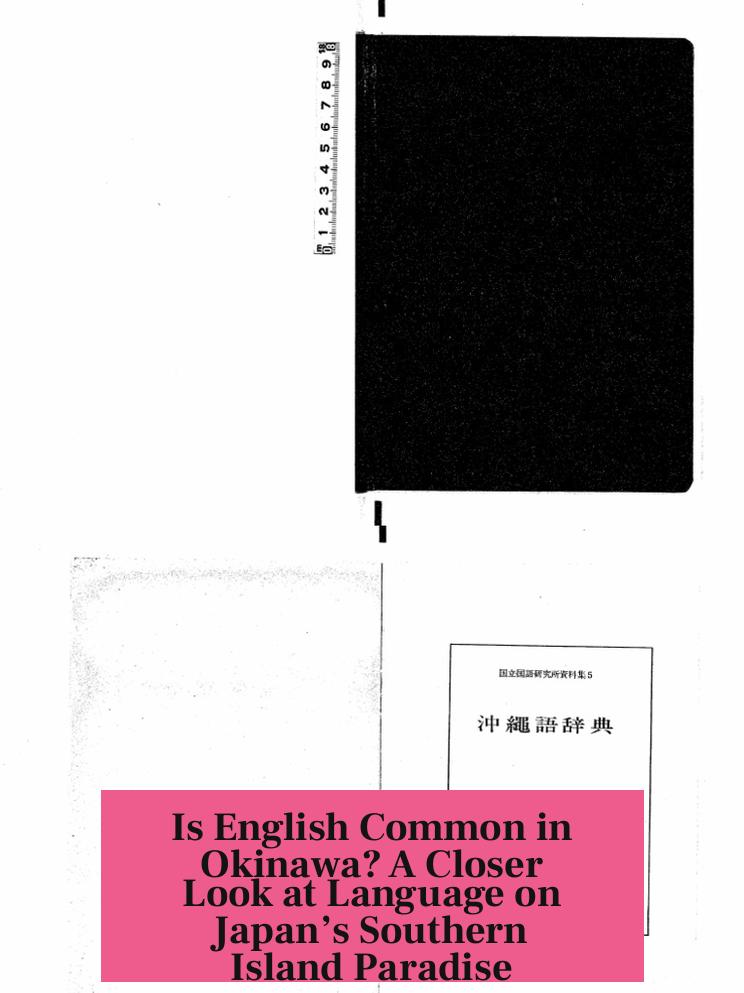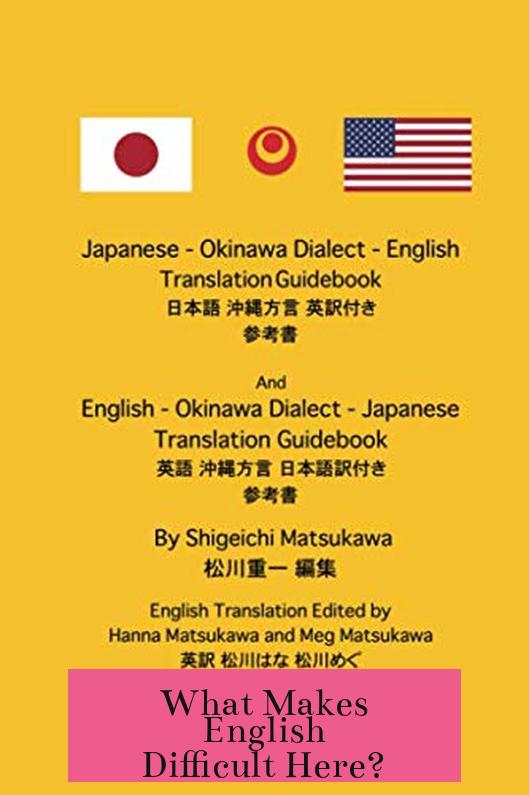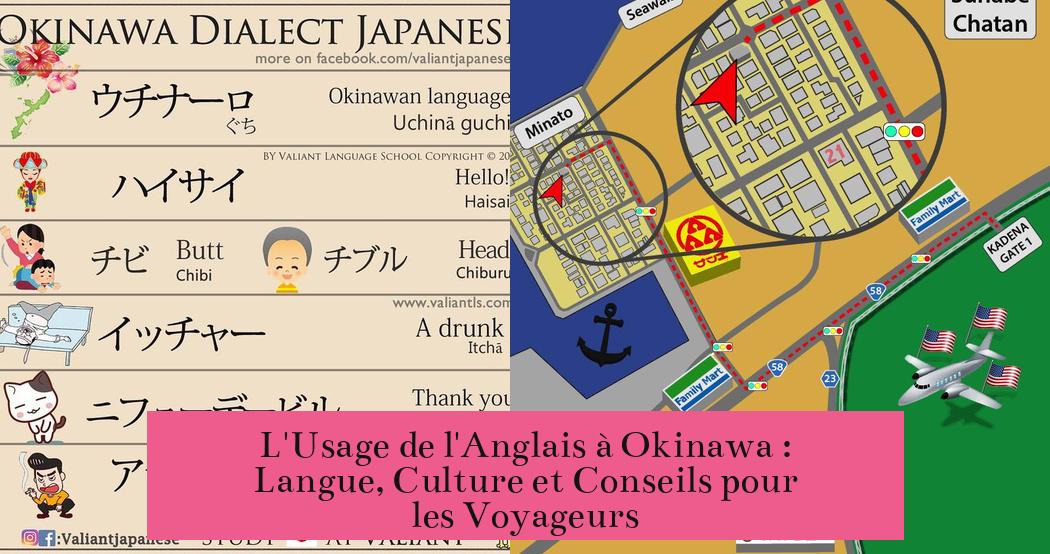Is English Common in Okinawa?

English is not widely spoken across Okinawa, but some people understand and speak it, especially in tourist areas. Japanese remains the primary language of daily communication on the islands.
Language Usage in Okinawa
Okinawa’s main language is Japanese. The local Ryukyuan languages exist but are less common. English proficiency varies, with many residents having limited or no English skills. This means communication in English might be challenging outside specific settings.
English Assistance for Tourists
Tourist spots and large hotels generally have English-speaking staff. They often offer brochures, menus, and signs in English. Multilingual tools like translation apps and information boards help bridge language gaps. Visitors can usually get assistance when needed.
Recommendations for Travelers
- Confirm language support when booking accommodations or tours.
- Use translation apps or carry phrasebooks for basic communication.
- Be patient and clear in communication; local staff often try to help.
- Prepare simple Japanese phrases as a backup.
In general, tourists who prepare for limited English interaction enjoy their stay more. English aids are accessible but not guaranteed everywhere.
Key Takeaways
- Japanese is the dominant language; English is limited in everyday use.
- Major hotels and tourist facilities offer English support.
- Planning and language tools improve travel experience.
Is English Common in Okinawa? A Closer Look at Language on Japan’s Southern Island Paradise

Yes, English is fairly common in Okinawa, especially in tourist spots and near U.S. military bases, but don’t expect the whole island to sound like a London pub. Japanese remains the main language, peppered with Okinawa’s unique dialects and local flavors. So, how well will your English serve you when you wander among the beaches and castles? Let’s unpack this.
The Language Mix: Japanese, Okinawan, and English
Okinawa wears its linguistic diversity like a badge. The official and dominant language is Japanese. Practically everyone living on Okinawa can speak standard Japanese, and it’s what you’ll hear most daily. But there’s more than meets the ear.
The islands boast their own Ryukyuan languages, like Okinawan, called “Uchinaaguchi” by locals. Far from being just a dialect, Uchinaaguchi has its own distinct vocabulary and grammatical twists. It sounds rather different from mainland Japanese, featuring influences that mingle from other Asian tongues.
This means even a Japanese speaker from Tokyo might struggle to understand locals who speak the Okinawan language fluently. So, if you blink and think, “They don’t sound Japanese,” your ears are right.
English in Tourist Hotspots: A Helpful Hand
If you’re planning a trip to Okinawa, especially its cities like Naha or resort areas, English will be your ally. Big hotels, restaurants, and tourist centers often offer English-speaking staff. And even if someone isn’t fluent, multilingual communication tools are commonplace, bridging gaps neatly.
Many tourist facilities stock brochures and menus in English. You can find invaluable materials at places like the tourist information center in Naha Airport. Before arrival or during your stay, dialing the Okinawa Multilingual Contact Center can help resolve questions swiftly in English.
Think of Okinawa’s English readiness as a VIP service: here if you need it, especially where tourists gather—beaches, museums, and shopping districts.
The Military Base Influence on English Usage
One unique factor elevating English use in Okinawa are the numerous U.S. military bases scattered across the islands. Over 10,000 Okinawans work on these bases, many in roles requiring English skills: hospitality, clerical, security, or retail.
The staffing agencies in the prefecture operate a bilingual employment engine. Companies like Plenty Staff supply thousands of workers skilled in English, creating a small but dynamic bilingual workforce. For someone passing through, those bases and nearby towns can feel a bit more international, a haven for English-speaking conversations in a sea of Japanese.
With military bases influencing local economies and cultures, English slips a bit more naturally into everyday life here compared to many parts of mainland Japan.
A Comparison: Okinawa vs Mainland Japan English Proficiency
Okinawa ranks among the more English-friendly prefectures in Japan, especially when weighed against rural or non-tourist areas of the mainland. English signage and basic communication in English appear more often here, thanks partially to military presence and tourism efforts.
Tokyo, unsurprisingly, tops the charts in overall English familiarity, with a larger percentage of residents speaking at least some English. But outside Japan’s massive capital, fluency thins out quickly.
On Okinawa, chances are higher that police officers or service staff speak a bit of English, compared to many other regions. Nevertheless, English remains a second language, and not the vernacular.
What Makes English Difficult Here?

The challenges Okinawans face with English echo those on mainland Japan. Pronunciation is tricky—Japanese speakers wrestle with sounds like “r” and “l.” Grammar styles are worlds apart, and without immersion or many native English contacts, practice is scarce.
Traditionally, only Japan’s most highly educated learned English, and even then, many were hesitant to speak it—shyness and fear of mistakes held back conversation. As Japan’s economy took hits in the 1990s and 2000s, more attention went to English for tourism and global connection. Since the 2011 earthquake, English education has become an even higher priority, changing English’s role from niche skill to global necessity.
Tips for Visitors: Navigating Okinawa with Your English
Concerned about language barriers? Don’t be. You’ll find that English will usually get the job done in urban and tourist areas. Here’s a little travel wisdom:
- Book hotels that specify English support or multilingual assistance.
- Learn some local greetings like “Haisai” (hello) and “Nifee deebiru” (thank you). They’ll earn you smiles and goodwill.
- Pick up local brochures at the airport or tourist centers—often in English.
- Use translation apps or phrasebooks for less touristy spots where English might thin out.
Okinawans generally appreciate when visitors make an effort, even a little, to engage in their language.
The Role of English Education and Jobs in Okinawa
English remains a hot skill here. Numerous teaching opportunities exist, fueled by programs like JET or private English schools. Demand keeps up thanks to the islands’ international appeal.
Furthermore, the bilingual staffing industry nurtured through military base needs not only creates jobs but encourages more Okinawans to hone their English. Efforts cater to Okinawan-Americans and residents with English as a first language, strengthening Okinawa’s bilingual possibilities.
Okinawa’s Unique Cultural and Communication Identity
Language flows closely with identity here. Okinawa’s cultural distinctiveness emerges clearly in its communication style and local dialects. English friendliness tends to cluster around urban centers and military zones, while rural parts preserve their linguistic heritage more strictly.
Visitors willing to explore beyond the tourist hubs may notice a quieter English presence but will be rewarded with rich cultural encounters.
Final Thoughts: Will You Survive With Just English in Okinawa?
Yes, you will—but some preparation helps. English is your friend in Okinawa’s lively tourist areas and around the U.S. bases; pockets of English speakers and helpful signage abound here. Yet, Okinawa holds strong its Japanese core and unique Ryukyuan dialects. Venturing off the beaten path without Japanese might get you into charmingly amusing misunderstandings more than tricky situations.
So, while brushing up on basic Japanese and Okinawan phrases is a kindness to your hosts, English opens plenty of doors on Okinawa. A little language effort paired with good humor goes a long way.
Ever met someone who turned a language barrier into a laugh and new friendship? That’s an experience Okinawa offers plenty of. Ready to swap “hello” for “haisai” and see how far your English takes you?
| Language Context | Presence/Notes |
|---|---|
| Japanese | Main language, spoken by nearly all Okinawans |
| Okinawan (Uchinaaguchi) | Local Ryukyuan language, distinct from standard Japanese |
| English | Common in tourist areas, U.S. military bases, and among younger generations |
Le personnel dans les hôtels d’Okinawa parle-t-il anglais ?
La plupart des grands hôtels et sites touristiques ont du personnel parlant anglais. Ils utilisent aussi des supports multilingues pour aider les visiteurs. Cela facilite la communication pour les touristes anglophones.
Peut-on se débrouiller en anglais dans les zones touristiques d’Okinawa ?
Oui, dans les zones touristiques et autour des bases militaires, l’anglais est assez courant. Beaucoup de jeunes et de professionnels ont au moins un niveau basique pour communiquer.
Y a-t-il des différences d’usage de l’anglais entre Okinawa et le reste du Japon ?
Okinawa est plus anglophone que certaines régions rurales du Japon. Principalement grâce à la présence militaire américaine et au tourisme, l’anglais y est plus accessible qu’ailleurs.
Quels sont les outils à disposition des visiteurs pour se faire aider en anglais ?
Les visiteurs peuvent utiliser des brochures multilingues disponibles à l’aéroport ou contacter le Centre Multilingue d’Okinawa pour obtenir de l’aide en anglais par téléphone.
Pourquoi le niveau d’anglais reste-t-il limité dans la vie quotidienne à Okinawa ?
Le japonais reste la langue principale. L’apprentissage de l’anglais est difficile pour beaucoup, car la prononciation et la grammaire sont très différentes, et les occasions de pratiquer sont rares hors zones touristiques.

